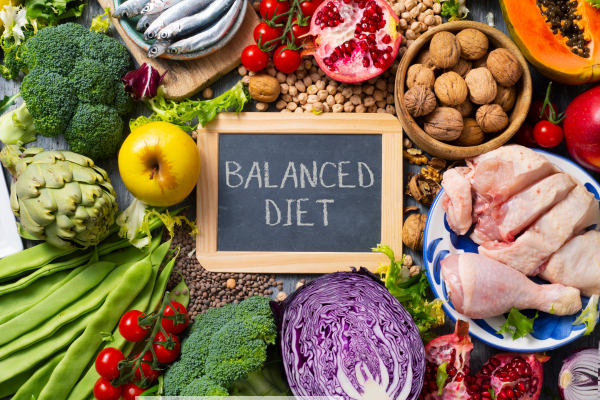Table of Contents
A balanced diet is essential for maintaining good health and well-being. It provides your body with the nutrients it needs to function properly. This includes the right balance of carbohydrates, proteins, fats, vitamins, and minerals. When your diet is balanced, you can enjoy numerous benefits, such as:
- Improved Energy Levels: A well-rounded diet fuels your body with energy.
- Better Immune Function: Proper nutrition helps strengthen your immune system.
- Weight Management: A balanced diet supports healthy weight control.
Furthermore, a balanced diet can reduce the risk of chronic diseases like heart disease, diabetes, and obesity. It is vital to include a variety of foods from different food groups to ensure you get all the necessary nutrients. Transitioning to a balanced diet doesn’t have to be difficult. Start by making small changes, such as incorporating more fruits and vegetables into your meals, and gradually work your way towards a healthier lifestyle.

Clean Eating for a Healthier Life
Clean eating is another essential aspect of maintaining a balanced diet. It involves choosing whole, natural foods over processed and refined products. Clean eating promotes the consumption of foods that are as close to their natural state as possible, which means fewer additives and preservatives. Benefits of clean eating include:
- Enhanced Digestive Health: Whole foods are easier for your body to digest.
- Better Skin Health: Natural foods are packed with vitamins that support skin health.
- Increased Mental Clarity: A clean diet can improve focus and cognitive function.
By focusing on clean eating, you can avoid the harmful effects of artificial ingredients and preservatives. Moreover, clean eating encourages mindful eating practices, which can help you develop a healthier relationship with food. This lifestyle change can also contribute to long-term weight management and improved overall health.
Superfoods and Their Role in a Balanced Diet
Superfoods are nutrient-rich foods that offer exceptional health benefits. Including superfoods in your diet is a great way to boost your overall nutrient intake. Some common superfoods include:
- Berries: Rich in antioxidants that help fight inflammation.
- Nuts and Seeds: High in healthy fats and protein.
- Leafy Greens: Packed with vitamins, minerals, and fiber.
Adding superfoods to your balanced diet can enhance your body’s ability to fight off diseases and maintain optimal health. These foods are also versatile and can be easily incorporated into various meals. Whether you add berries to your morning smoothie or sprinkle seeds on your salad, superfoods make it easy to enhance the nutritional value of your meals. As you explore different superfoods, you may discover new favorites that make healthy eating more enjoyable.

Mindful Eating Practices for Long-Term Wellness
Mindful eating is an approach that emphasizes paying attention to your food and eating habits. It involves being aware of the sensations, thoughts, and emotions that arise during meals. Mindful eating can help you develop a healthier relationship with food by:
- Reducing Overeating: By listening to your body’s hunger and fullness cues.
- Improving Digestion: Eating slowly and chewing thoroughly aids digestion.
- Enhancing Enjoyment of Food: Mindfulness allows you to savor each bite.
Incorporating mindful eating practices into your daily routine can lead to better dietary choices and improved overall health. It encourages you to focus on the quality of your food rather than just the quantity. This approach can also help you identify emotional eating triggers, allowing you to address the underlying causes of unhealthy eating habits. Over time, mindful eating can lead to sustainable changes in your diet and overall well-being.
Hydration and Its Impact on a Balanced Diet
Staying hydrated is a crucial part of maintaining a balanced diet. Water plays a vital role in various bodily functions, including digestion, circulation, and temperature regulation. Proper hydration offers several health benefits:
- Improved Physical Performance: Staying hydrated helps maintain energy levels during exercise.
- Better Skin Health: Adequate water intake keeps your skin hydrated and supple.
- Enhanced Metabolism: Water supports metabolic processes, aiding in weight management.
It’s important to drink enough water throughout the day, especially when consuming a balanced diet. Water helps transport nutrients to your cells and removes waste products from your body. Moreover, staying hydrated can prevent overeating, as thirst is often mistaken for hunger. To ensure you’re getting enough water, aim to drink at least eight glasses a day and increase your intake during physical activity or hot weather.










